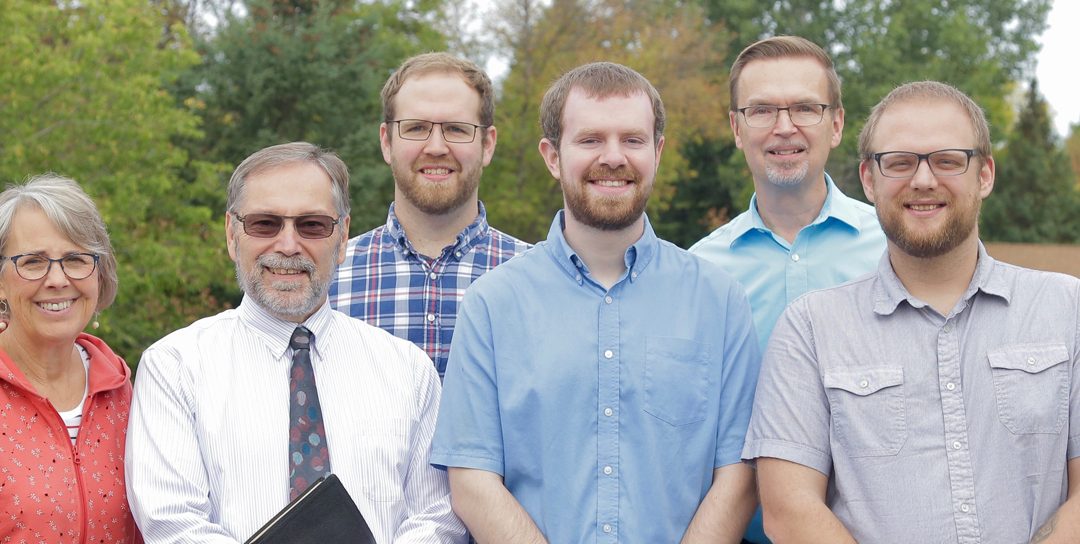With the goal of instilling a passion in students for reaching lost people, Lutheran Brethren Seminary offers a class called “Cross Cultural Communication in Mission.” The course requires a short-term mission trip where students examine their role as incarnational representatives of Christ. In the most recent trip, four LBS students visited Japan. They were accompanied by LBS Professor of Mission and Evangelism Dr. Gaylan Mathiesen and his wife Joy, who served many years with LBIM in Japan. While in Japan, the group was guided by current missionaries Dean and Linda Bengtson. The four seminarians, Matt Rieniets, Justin Carlson, Roger Larson, and Paul Fraser, share their impressions of Japan:
Matt Rieniets:
In case you were wondering, Japan is not like North America! One obvious difference is that it doesn’t have a large Christian presence. Christians are very much the minority—less than 1% of the population. So Christians are facing the big issue of how the Church can actually reach out into the culture effectively.
It was a gift to us to have Dean and Linda Bengtson journeying with us and caring for us. They hosted us at the House of Hope in Ishinomaki. In their ministry outreach, they provide concerts, Bible studies, and cooking classes. They reach out as neighbors to their community.
We saw what the religious culture is, not just from a textbook, but by actually engaging people. The two main religions are Buddhism and Shinto, and the Japanese kind of blend them together. We toured two Buddhist temples, and got to visit with a Buddhist monk’s wife, and then the monk who is, basically, carving idols. It was really enlightening seeing how Japanese people answer the problems of life.
Justin Carlson:
The first thing you’ll notice in Japan is that it’s crowded. There were a lot of people on the train to Shibuya. This was the most crowded we experienced, but it’s not the most crowded that there is. The train stations employ people specifically to push people into the train cars so the doors can close and they can get on their way.
The large population is confined to small areas because there isn’t that much land in Japan usable for living. I’ve never been to Times Square, but our experience in a large city makes me think I know what it’s like. At one well-known intersection, there was a scramble crossing where everybody goes at once—like thousands of people crossing.
It also struck me when we went to something like a “dollar store” and there was a large selection of face masks available. It was not uncommon to see people wearing these if they are sick. It’s a matter of politeness, to prevent disease from spreading either to you, or from you.
Roger Larson:
It was a privilege taking this “vision trip” to Japan. Most people in Japan do not have the light; most walk in spiritual darkness. Although our Lutheran Brethren Church in Japan just celebrated 70 years of sharing the gospel, there are yet many who have not heard the good news and many who though they have heard it, have not yet come to faith. Many Japanese consider themselves both Buddhist and Shintoist. However, religion does not play a big role in the everyday life of most Japanese people. Today, the average person usually follows the religious rituals at ceremonies like births, weddings and funerals, and may visit a shrine or temple on special occasions, or participate in local festivals.
One of the main barriers to Christianity is its exclusive orientation. Jesus is the only way to salvation. Japanese like to borrow favorite parts of different religions. There are many in Japan who don’t believe in any god and who are secular. This is especially common in big cities. Usually it takes many years of “seed planting” and cultivation for a Japanese person to come to faith.
Paul Fraser:
Please pray for Japan and our mission there. Pray for more pastors and missionaries. Pray for an openness to the gospel, and consider what God may be calling you to do, whether at home or overseas. One of the things that left an impression on me was how Dean and Linda did mission work. They are building relationships with a neighborhood, experiencing community.
One of the words of our God that really connects with the Japanese is from Isaiah 43, “But now, this is what the Lord says—he who created you, Jacob, he who formed you, Israel: ‘Do not fear, for I have redeemed you; I have summoned you by name; you are mine… Since you are precious and honored in my sight, and because I love you…’” (43:1,4a).
It’s wonderful for them to learn that there’s a God who knows them and sees them as loved and honored. He has taken their shame and dealt with it, so they are no longer shameful, but they are precious in the Lord’s sight. That’s good news for people who are weighed down with shame.
Lutheran Brethren Seminary serves the Church and the world by preparing servants of Christ for a life of ministry in God’s mission and for equipping His people to serve in His mission.

